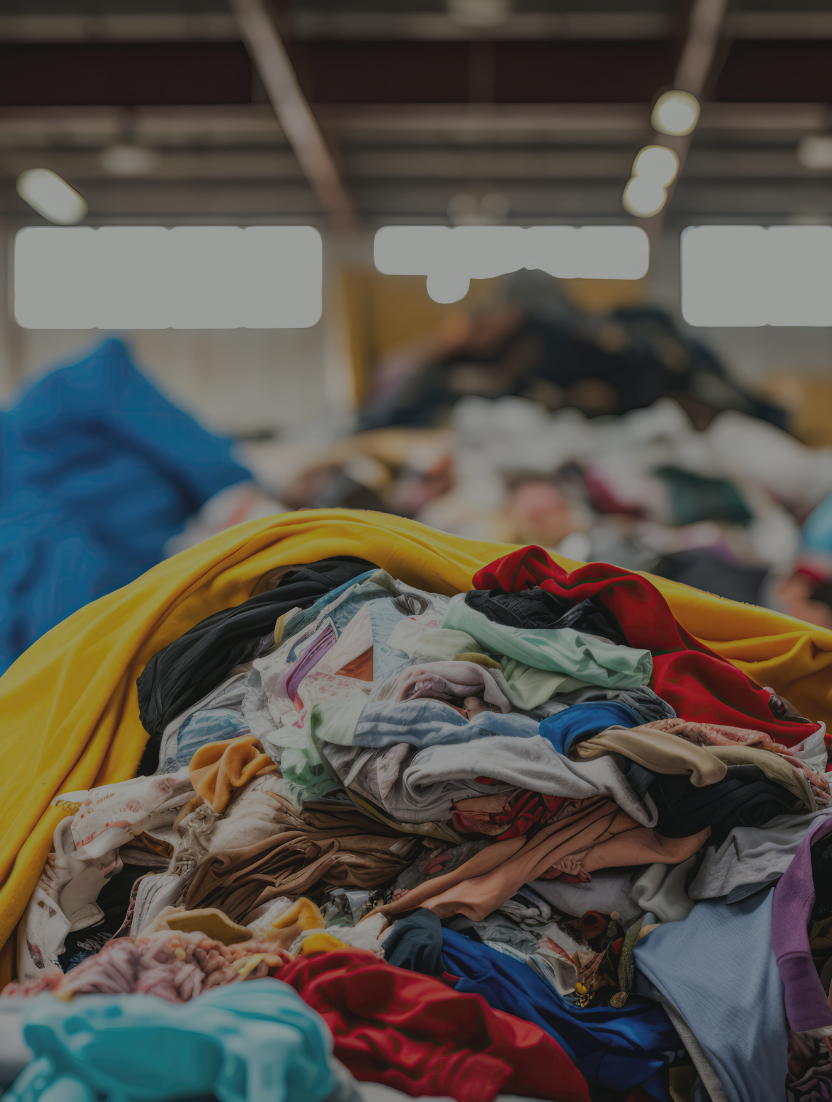
Tech-Enabled Textile Sorting: Unraveling the Threads of Fashion Sustainability
Today, the fashion industry continues to contribute 8% of global greenhouse gases and overflowing landfills with textile waste. Beyond the environmental toll, over $500 billion in economic potential is lost annually from discarded textiles that can be reused, repaired, resold, or recycled. A paradigm shift is more pressing than ever. Embracing innovative technologies and reshaping the way we view textile waste can help enable this shift.
The Challenge of Excess: A Pile of Potential
Every clothing brand faces the inevitable challenge of excess goods—returns, damaged items, or simply an oversupply. The key lies in how these products are recovered with minimal environmental impact, ushering in a circular system that values waste as a new raw material.
The crux of maximizing the value of excess inventory lies in next-life logistics—a process that efficiently allocates textile products through reuse, recycling, repair, or recovery. In a departure from manual sorting, innovative technologies are emerging to revolutionize textile sortation, addressing critical challenges such as brand, category, style, color, condition, and material type sorting. Debrand’s tech-enabled sorting system is a game-changer that accurately identifies, sorts, grades, and allocates returned, damaged, and surplus goods. This system aligns with business needs, sustainability goals, and product specifications, seamlessly integrating with next-life solutions like textile resale, donation, repair, recycling, and responsible disposal.
Collaboration is Key: Building an Ecosystem of Innovative Technologies
The next step in achieving circularity is fostering collaboration within an inclusive ecosystem. Digital product identification companies like EON play a crucial role by digitizing product data and embedding it in each item. This digital identity facilitates the identification of materials and components, guiding products along their next-life path.
Another pioneer, Coleo, employs technology to recycle post-consumer waste. They automate traceability of material origin and quality throughout a product’s lifecycle. Processing around 5000 tons of material annually, Coleo exemplifies the potential for textile circularity.
Next-Life Logistics: A Path to True Sustainability
As the fashion industry continues to embrace innovative technologies, the efficiency of textile sortation will improve over time. The environmental benefits are immense, reducing overall waste and lessening the consumption of critical raw materials and natural resources.
Next-life logistics not only extends the life of products but also aids in pinpointing why certain materials can’t be recycled. By sharing this information up the supply chain, designers gain insights to avoid creating products destined for landfills. The goal is to create systems of sustainability that enable brands to source, sell, and sort products for maximum economic gains while maintaining environmental integrity.
Technology as the Course Corrector
While the journey towards a circular fashion economy may seem lengthy, emerging advanced technologies offer encouragement and potential. A true shift towards sustainability requires collaboration and innovation. Apparel brands need to recognize the value in their investment for both the planet and their bottom line. By boosting textile sortation on a global scale, the industry can pave the way for a more sustainable future across the entire supply chain.
This article was first published on Fibre2Fashion
